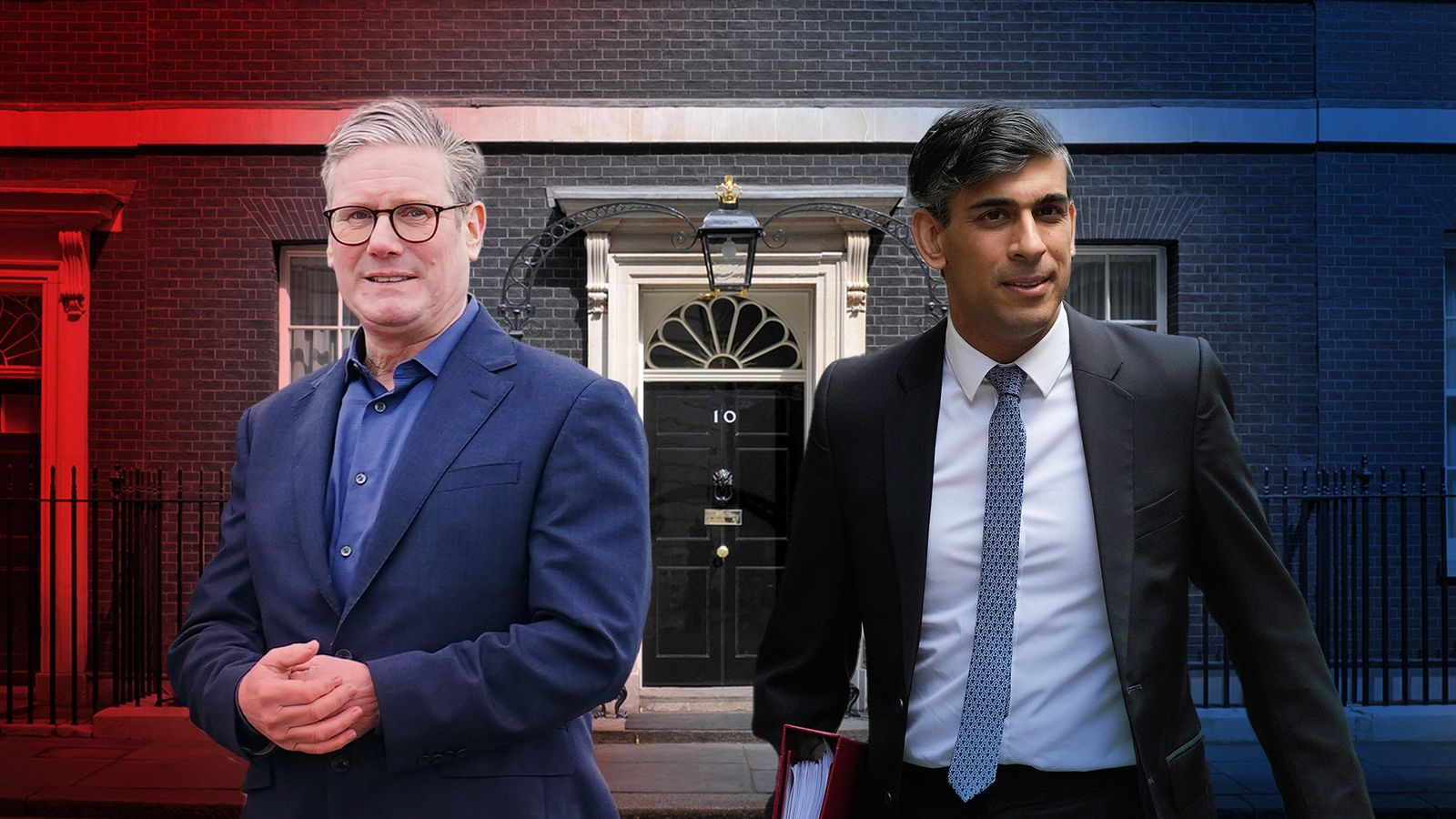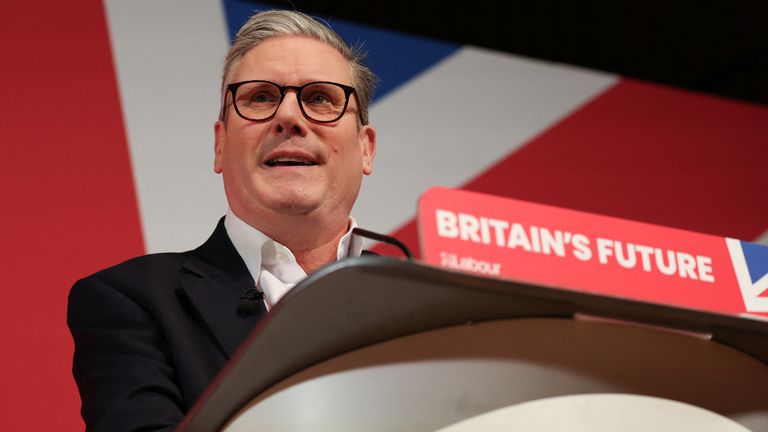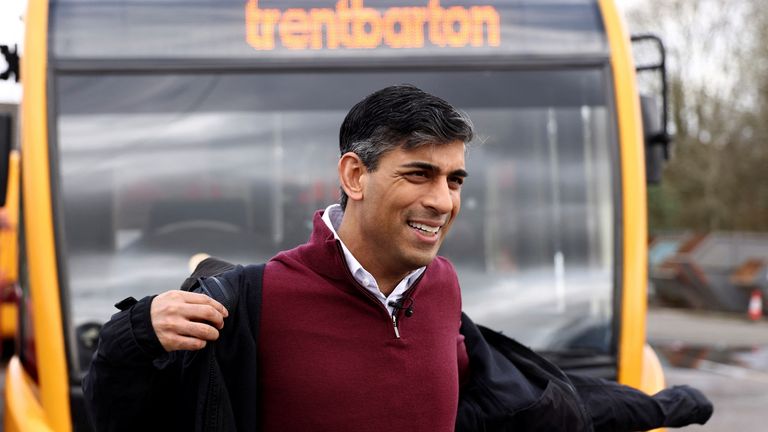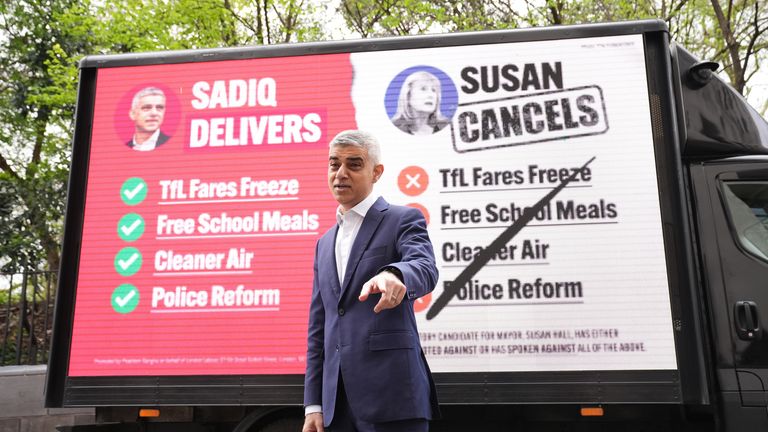No wonder the Labour Party is desperate for a general election now and bitterly disappointed that Rishi Sunak has “bottled it”, in Keir Starmer’s words, and is sticking to his plan not to hold it until the autumn at the earliest.
Sir John Curtice, the UK polling guru, has gone on the record that there is “a 99% chance of Labour forming the next administration”.
What could possibly go wrong for Labour between now and the verdict of the voters?
Curtice’s one-in-a-hundred chance of falling short is comforting for Sir Keir Starmer, but nobody around him is treating victory as a done deal.
No one has slipped up in the way Cherie Blair did in the run-up to the 1997 election when she chatted to ITN’s political editor about “when” not “if” the family would be in Downing Street.
Party workers of all kinds, including the shadow cabinet, regional organisers, special advisers and press officers are being summoned to HQ for “no complacency” pep talks.
Trump’s 2016 win is a warning against complacency
At the start of the year, Starmer’s campaign manager, Morgan McSweeney, even produced a slide pack on the theme “polls do not predict the future”.
It listed recent examples from Australia, Germany and Norway, among others, where a party’s sustained lead in opinion polls did not deliver on the day. Trump’s defeat of Hillary Clinton in 2016 being Exhibit A.
The country is three months further on from then and three months closer to the election.
Labour has sustained its remarkable lead of around 18 points for another three months, a gap that has been that wide for two years since Boris Johnson hit the skids.
And any local difficulties for Starmer are dwarfed by continuing troubles for the Tories.
Even as he tries to point to slightly improving economic circumstances, Rishi Sunak has been beset by further resignations.
Nevertheless, the Labour leadership is braced for a “narrowing in the polls”.
The local elections in England and Wales on 2 May will be a big test of “real votes in real ballot boxes”, which politicians always say they prefer to polls.
In the last set of these elections, the Conservatives were on a high with a vote share calculated at 40%, with Labour on 30%. Those tables need to be more than reversed if Labour is to live up to its advanced billing, with the Tories dropping towards a vote share in the low 20s.
That would mean the Conservatives losing around 500 seats net – more than half of those they currently hold.
Read more from Sky News:
How Tory MPs can get rid of Sunak – and who could replace him
The possible path to a summer election
Public interest, like voter turnout, tends to be higher in the big mayoral contests.
In London, the government has changed the rules to first past the post to damage the chances of Labour’s Sadiq Khan winning a third term.
Some Conservative campaigners are also playing dirty against him – as shown by a grim online video this week containing shots taken from New York City backed up with questionable presentation of crime statistics.
Khan says this is his hardest election but it seems unlikely that he will be defeated by Susan Hall, the Tory candidate in the capital’s mayoral race.
By any measure, it would be a major shock if Labour fails to win back Blackpool South in the parliamentary by-election, which the Conservatives hope to bury in the excitement of local elections day.
The Conservatives have higher hopes elsewhere following the de facto bankruptcy of Birmingham Council.
It would be a grave blow to them if Andy Street is not re-elected as mayor of the West Midlands. Especially if coupled with defeat in the Tees Valley for Sunak’s controversial poster boy Lord (Ben) Houchen.
Conversely, should Labour underperform and the Tories hang on to some trophy mayors, there is renewed speculation that Sunak might be tempted to go for a general election in June. Not everyone agrees.
One grandee from the John Mayor years observed “it is very difficult to persuade a prime minister to lose now because he’ll only lose worse later”.
👉 Listen above then tap here to follow Electoral Dysfunction wherever you get your podcasts 👈
A summer general election could come about another way if the Conservative local election performance is very bad.
In that scenario, Sunak’s allies expect him to go to the country rather than face a vote of no confidence by Tory MPs.
Labour’s will to win
On the assumption that the government struggles on through the summer, parliament is set to finalise the Rwanda deportation legislation when they return from their Easter break in mid-April.
The Conservatives are hoping for a boost in popularity if a flight gets off soon after that – or at least to reduce the threat from Reform and others on the right.
Sir Keir Starmer is also likely to find himself dealing with fractious elements in his party over the summer. There is no sign of peace in either of the conflict zones of Israel-Gaza or Ukraine-Russia.
Jeremy Corbyn and his backers do not share Starmer’s instincts in either conflict.
There are many pro-Palestinians among Labour’s likely voters. A divisive decision on whether to re-instate Diane Abbott in the party is looming, as is the choice of Labour candidate to stand in Corbyn’s Islington North constituency.
Greater Manchester Police have reopened their inquiries into deputy leader Angela Rayner’s alleged non-payment of capital gains tax on her home.
Labour’s will to win is currently as strong as the Conservatives’ is weak. That and, firm discipline from the leadership, should keep the party broadly united.
Some on both left and right will continue to speak up – amplified by the many Tory sympathisers in the media.
In the space of a few days this week, the left-wing polemicist Owen Jones publicised his resignation from Labour and Peter Mandelson fired a warning shot on behalf of business against Rayner’s proposed new deal for workers.
The likely dates PM will go to polls after rocky conferences
As things stand, the party conference season should go ahead as normal in September.
If they run true to form, any Labour discontent will bubble to the surface in Liverpool, while the Conservatives will try to use Birmingham to launch their general election campaign.
Some expect Sunak to use his leader’s speech to confirm polling day as Thursday 24 October – the day when he will chalk up precisely two years as prime minister.
Two hardened former cabinet ministers told me their working assumption is that it will not be until the 14 or 21 November, after the US election on 5 November. If it is Trump, he is bound to stick his oar into UK politics.
No prime minister, I am assured, would ruin Christmas by holding out until the last legal date in late January 2025 but, in extremis, 19 December this year remains a possibility, in the hope of repeating some of Boris Johnson‘s 2019 differential turnout coup.
Better late than never. It looks as if Sir Keir Starmer still has many months to navigate through until the Curtice-promised land of that general election.





